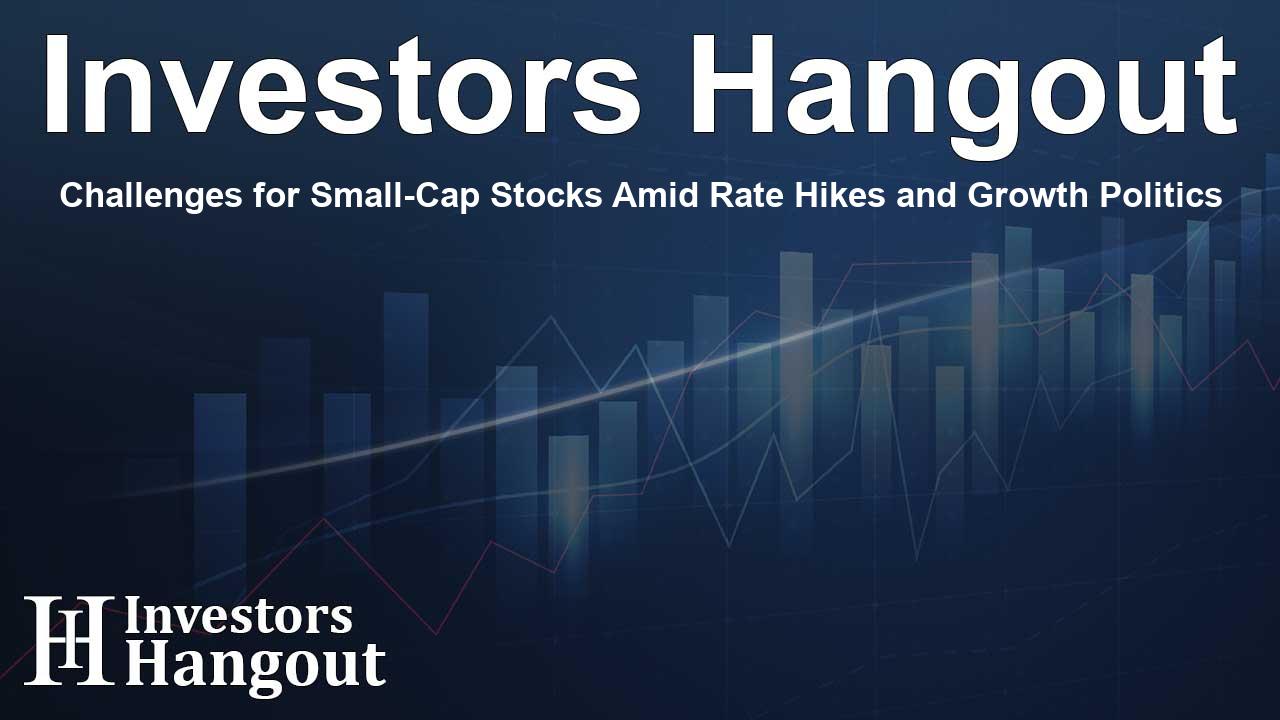Challenges for Small-Cap Stocks Amid Rate Hikes and Growth Politics

Current Landscape for Small-Cap Stocks
The small-cap sector of the market currently faces significant challenges, particularly in the context of rising interest rates. Investors have traditionally looked to small-cap stocks as favorable under certain economic conditions, especially with political shifts promising a pro-growth agenda. However, recent market dynamics present a complex picture for investors.
Market Reaction and Interest Rates
Recent trends indicate a struggle for small-cap stocks, particularly as the Russell 2000 index, which represents small companies, has experienced notable volatility. After enjoying a brief surge following a major political victory, small-cap stocks have found themselves under pressure, leading to a correction of approximately 10% from peak levels, while larger indices like the S&P 500 have fared better with a modest decline. This disparity raises essential questions around the motivations behind investing in smaller companies amidst rising borrowing costs and tightening fiscal policies.
The Tug of War for Investors
Investment experts suggest a paradox exists within the small-cap sector. On one hand, supportive policies referenced in a changing political landscape could herald growth opportunities; on the other, higher interest rates pose a significant threat. As the Federal Reserve signals intentions to manage inflation actively, investors face a tug-of-war situation where the advantages of growth must be weighed against rising financial costs.
Small Caps vs. Large Caps: The Performance Gap
While the overall stock market displayed resilience following a significant electoral event, small-cap stocks seem to be lagging. The S&P 500 has shown steady gains, significantly outperforming smaller counterparts. The nearly 50% increase observed in larger stocks underscores the growing performance gap. Meanwhile, the Russell 2000 has remained relatively stagnant since the election period, highlighting the unique position smaller companies are in.
Sector Sensitivity and Future Concerns
Investors must also consider the sector allocations within small-cap indices, which tend to lean heavily toward sectors susceptible to financial shifts, such as financial services and industrials. Given that small caps are more reliant on external financing structures, higher interest rates could hinder their ability to capitalize on growth opportunities presented by favorable market conditions.
Political Environment and Its Implications
The political environment under the leadership of new policies raises questions about the future trajectory of small-cap stocks. Historically, smaller companies often thrive under conditions that emphasize local business growth and reduced regulatory burdens. The expectation from newly implemented policies suggests that there might be potential for small caps to gain traction; however, external factors, including import tariffs or inflationary pressures, could complicate growth trajectories.
The Outlook for Small-Cap Investors
As investors evaluate their positions, the outlook for small-cap stocks continues to be a topic of discussions. Strategists argue that while potential exists for these stocks to catch up, especially under favorable monetary conditions, ongoing inflation and perceptions around fiscal responsibility remain pivotal concerns. Investors are urged to monitor developments closely, adjusting strategies to safeguard investments as market dynamics evolve.
Frequently Asked Questions
What are small-cap stocks?
Small-cap stocks are shares of smaller companies with lower total market capitalization, typically considered to be between $300 million to $2 billion.
How do interest rates affect small-cap stocks?
Higher interest rates increase borrowing costs, which can hinder small companies' growth and profitability, making them more sensitive to rate hikes compared to larger corporations.
Why are small-cap stocks important to investors?
Small-cap stocks are often seen as riskier but can provide higher potential returns, particularly in a robust economic environment with supportive government policies.
What impact does political policy have on the stock market?
Political policies can influence economic conditions, regulatory environments, and fiscal strategies, affecting business growth prospects, which in turn impact stock market performance.
Should investors expect small-cap stocks to outperform large caps?
While small-cap stocks often have the potential to outperform during economic recoveries, current conditions, including rising interest rates and inflation concerns, may challenge their performance in the near term.
About The Author
Contact Kelly Martin privately here. Or send an email with ATTN: Kelly Martin as the subject to contact@investorshangout.com.
About Investors Hangout
Investors Hangout is a leading online stock forum for financial discussion and learning, offering a wide range of free tools and resources. It draws in traders of all levels, who exchange market knowledge, investigate trading tactics, and keep an eye on industry developments in real time. Featuring financial articles, stock message boards, quotes, charts, company profiles, and live news updates. Through cooperative learning and a wealth of informational resources, it helps users from novices creating their first portfolios to experts honing their techniques. Join Investors Hangout today: https://investorshangout.com/
The content of this article is based on factual, publicly available information and does not represent legal, financial, or investment advice. Investors Hangout does not offer financial advice, and the author is not a licensed financial advisor. Consult a qualified advisor before making any financial or investment decisions based on this article. This article should not be considered advice to purchase, sell, or hold any securities or other investments. If any of the material provided here is inaccurate, please contact us for corrections.
